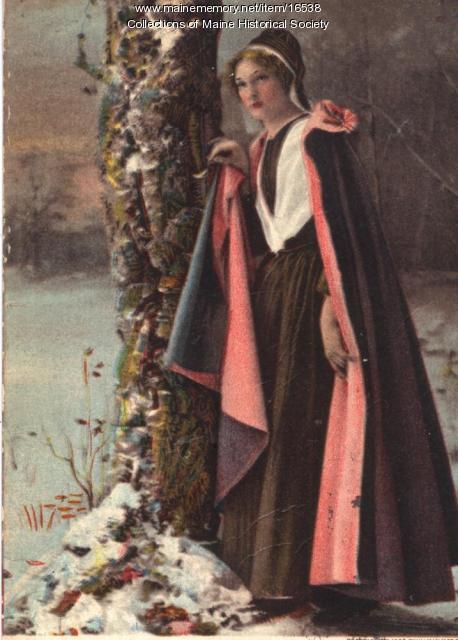Keywords: choosing
Item 9452
Choosing Lobsters for a Clambake, Squirrel Island, 1921
Contributed by: Stanley Museum Date: 1921-08-19 Location: Southport Media: Photographic print
Item 116
Children preparing to play baseball, Portland, 1927
Contributed by: Maine Historical Society/MaineToday Media Date: 1927 Location: Portland Media: Glass Negative
Exhibit
Selections from the Collections
Maine Historical Society staff come across unique and unforgettable items in our collections every day. While it's difficult to choose favorites from a dynamic collection, this exhibit features memorable highlights as selected by members of the MHS staff.
Exhibit
Rum, Riot, and Reform - Reform and Repeal
"Though some individual towns would choose to remain dry, the Noble Experiment had ended for the state and nation. X Patrick and Marie Cyr, ca."
Site Page
Life on a Tidal River - Doughty Students
"Bill Cook assists a student with choosing items from the Dow Scrapbook. X Students discuss the Flying Torah with Mr. Bill Cook."
Site Page
Swan's Island: Six miles east of ordinary - -Across the Sea- a history through transportation
"… life like on a Maine island? What sort of person chooses to place six miles of water between themselves and "civilization?" The people of Swan's…"
Story
Choosing a Career in Country and Bluegrass Music
by Ken Brooks
How I became a country and bluegrass musician
Story
One View
by Karen Jelenfy
My life as an artist in Maine.
Lesson Plan
Longfellow Studies: The Acadian Diaspora - Reading "Evangeline" as a Feminist and Metaphoric Text
Grade Level: 6-8, 9-12
Content Area: English Language Arts, Social Studies
Evangeline, Longfellow's heroine, has long been read as a search for Evangeline's long-lost love, Gabrielle--separated by the British in 1755 at the time of the Grand Derangement, the Acadian Diaspora. The couple comes to find each other late in life and the story ends. Or does it?
Why does Longfellow choose to tell the story of this cultural group with a woman as the protagonist who is a member of a minority culture the Acadians? Does this say something about Longfellow's ability for understanding the misfortunes of others?
Who is Evangeline searching for? Is it Gabriel, or her long-lost land of Acadia? Does the couple represent that which is lost to them, the land of their birth and rebirth? These are some of the thoughts and ideas which permeate Longfellow's text, Evangeline, beyond the tale of two lovers lost to one another. As the documentary, Evangeline's Quest (see below) states: "The Acadians, the only people to celebrate their defeat." They, as a cultural group, are found in the poem and their story is told.













